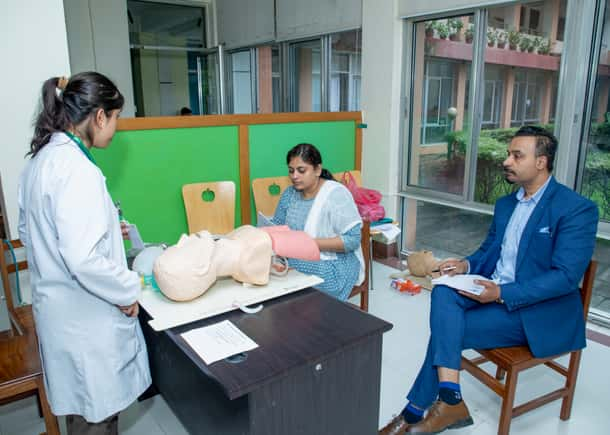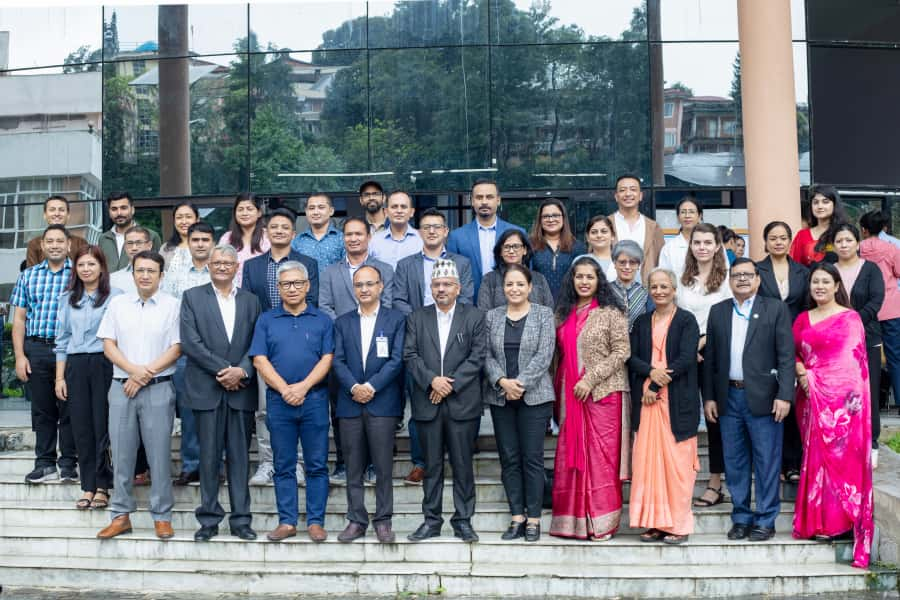Bringing Competency-Based Assessment to Nepal’s Medical Licensure Examination


An exciting pilot-test program for the integration of competency-based assessments into the medical licensure examination in Nepal is underway, with the aim of bringing about competent medical graduates, improving the quality of healthcare and saving lives.
On the 4th October 2023, a pilot-test program, led by Nepal Medical Council and supported by the World Health Organization Nepal and Laerdal Global Health, began. The program integrates competency-based assessments into the medical licensure examination in Nepal for the first time, marking a milestone in the history of medical education for the country
Laerdal Global Health is proud to be working as part of a formal agreement to support the Nepal Medical Council in this initiative and has also worked closely with WHO Nepal, Ministry of Health and Population, Medical Education Commission, and the constituent universities and affiliated medical colleges across Nepal.

We have been talking about the competency of the graduates since a long time. But the real process of assessing competency of candidates in selected essential procedures is beginning now. The pilot study will help us standardize the tools. This will be an important milestone in medical education in Nepal.
Until now, the medical licensure examination in Nepal has only assessed knowledge and cognition without the component of psychomotor skills assessment. An urgent need existed to ensure minimum standards of competency in the medical students before they began their practice, including ensuring effective clinical skills.
This aims to provide a framework for competencies required for medical graduates and sets high standards for medical practice, reducing medical errors and improving quality of care in Nepal.
To set the standards and ensure consistent high-quality care for the Nepalese population, around 60 core competencies for the MBBS (Bachelor of Medicine, Bachelor of Surgery) program were identified through consultation with the institutions and stakeholders. Out of those 60, 26 initial competencies were identified by the NMC and key stakeholders and integrated into the licensure examinations as part of the pilot-test program.
Competency-based assessments is a globally essential approach, and it is commendable that Nepal is initiating this and integrating the approach. This will pave the way for the development of exceptionally skilled medical professionals, a reduction in patient errors and a significant elevation of medical practice standards in Nepal.
Unisha Shrestha, Implementation Manager, Nepal, Laerdal Global Health continued: “The collective, tireless, rigorous, highly inclusive, and holistic efforts from all the key stakeholders for the initiative are commendable. We, at Laerdal Global Health, are confident that the approach will help develop a context-specific, affordable, efficient skills-based licensing examination model, ultimately shaping the trajectory of medical education in Nepal. This is a key milestone in healthcare education for Nepal and a potential global example.”
After the initial pilot-test program, the remaining competencies from the 60 identified will be tested, with standardized teaching and assessment tools established. The initiative will scale up nationally to reach all the medical colleges by 2024. This means by 2025 more than 5000 lives could be saved through this initiative.